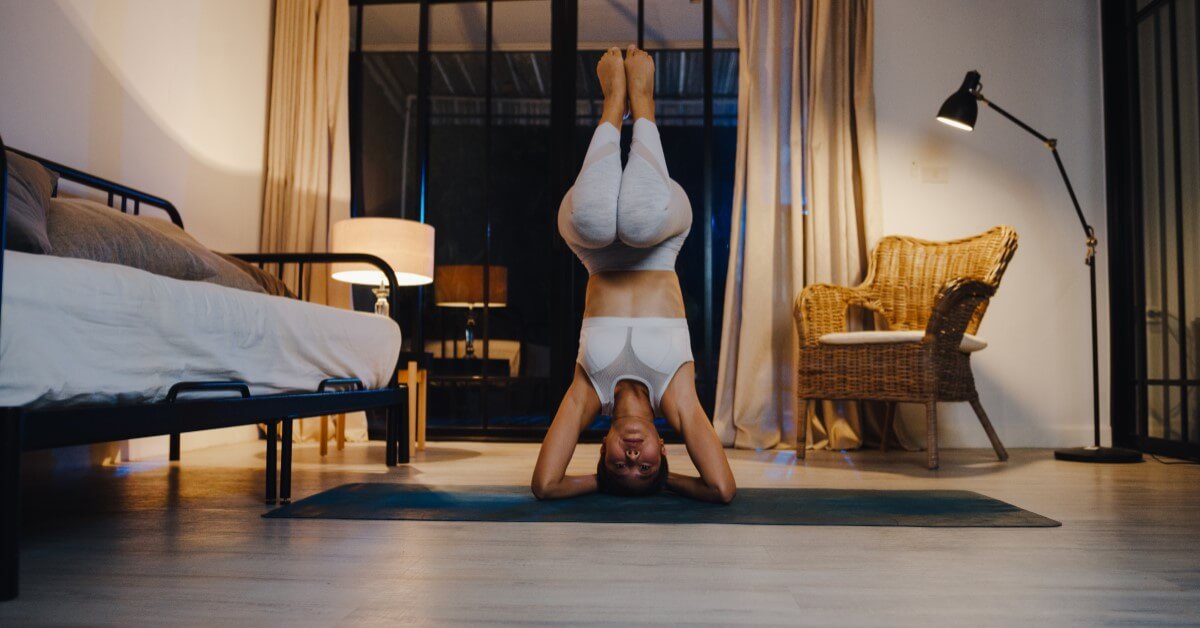Overview
Often, life gets so busy that time for exercise is pushed further and further into the later parts of the day. For various reasons, some prefer workouts later in the day or very close to bedtime.
If you find yourself in these situations, have you ever wondered if your sleep quality is affected by this late-night physical activity? Perhaps you found it challenging to fall asleep after a vigorous workout, or you sleep like a baby after lifting weights in the gym?
Both are possible; however, new research supports physiological reactions to exercise that is done close to bedtime. As it turns out, it’s not the fact that you are exercising at a late hour that can mean the difference between a good night’s sleep or waking up unrefreshed. It’s the type of exercise that you do.
The Value of Sleep
If you work out regularly, you pay closer attention to your health than the average person. Sleep is one of the three pillars of health, along with proper diet and exercise.
The human body needs quality sleep; without it, many health markers, such as cardiovascular health, blood pressure, mood stability, and cognitive components, start to decline significantly.
Conversely, quality sleep improves overall health, mental focus, and motivation. Unfortunately, sleep doesn’t get nearly the attention the other pillars do.
Yet these components of good health are interlinked. With proper nutrition, you get fuel for exercise. You get a good night’s rest with exercise – but there is a catch.
All Exercise is Good, Right?
The short answer is yes. However, we need to sharpen the focus a bit when it comes to workout timing.
Not all exercise is good when it comes to bedtime. Traditionally, people were advised not to work out close to bedtime because of potential adverse effects on sleep. However, a recent systematic review of multiple studies on this topic has revealed an essential difference in the impact of various types of exercise on sleep.
Best and Worst Exercise for Sleep
The review of studies showed that vigorous exercise caused sleep problems, such as taking longer to fall asleep or even waking up too early.[1]
High-intensity exercises such as training for a marathon or high-intensity interval training (HIIT), where a slower pace follows short bursts of intense exercise before accelerating again, can cause poor sleep.
This finding is because the body produces a lot of cortisol, a stress hormone, during exercise. Much more so when the workouts are high in intensity. With cortisol essentially putting your body on high alert, sleep becomes impacted.
On the other hand, when the exercise is done at a moderate pace, think lifting weights, walking, or recreational swimming, there is an association with improved sleep quality. People with insomnia who enjoy moderate exercise close to bedtime fall asleep faster than their non-exercising counterparts.[2]
Conclusion
If you are one of the many people who can only get workouts in later at night due to a busy lifestyle, congratulations! You are dedicated to your health and well-being.
To ensure that this commitment also translates to a good night’s rest, try to do your intense physical activity earlier in the day, perhaps a lunchtime workout, to avoid the production of excess cortisol, known as cortisol creep, before bed.
However, do your more moderate workouts later in the afternoon or evening to reap the benefits of improved, quality sleep.
References:
- Stutz J, Eiholzer R, Spengler CM. Effects of Evening Exercise on Sleep in Healthy Participants: A Systematic Review and Meta-Analysis. Sports Med. 2019 Feb;49(2):269-287. doi: 10.1007/s40279-018-1015-0. PMID: 30374942.
- Passos GS, Poyares D, Santana MG, D’Aurea CV, Youngstedt SD, Tufik S, de Mello MT. Effects of moderate aerobic exercise training on chronic primary insomnia. Sleep Med. 2011 Dec;12(10):1018-27. doi: 10.1016/j.sleep.2011.02.007. Epub 2011 Oct 22. PMID: 22019457.






